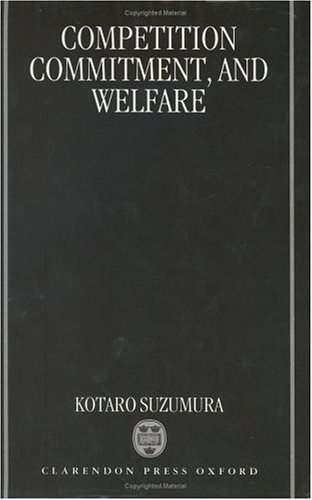This book examines one of the classical issues in theoretical welfare economics - namely, the effects on social welfare of increasing competition between firms. The author explores whether promoting competition is in fact desirable - an issue which is central to modern debates about the role of markets. The desirability of competition, an idea which can be traced back to Adam Smith, is widely accepted, resulting in the widespread belief that by increasing inter-firm competition we may always improve social welfare. However this is challenged by another piece of conventional wisdom which claims that excessive competition is as harmful as insufficient competition. The author poses two questions in looking at these issues: can competition ever be excessive in the welfare-theoretic sense? Can policy intervention in the name of keeping excessive competition under control be justified? Starting from an elementary model of oligopoly and introducing several complexities step by step, the author shows that competition can certainly be socially excessive, but that regulation of competition may cause serious distortions of its own.
The latter, he argues, should be weighed against market distortions arising from excessive competition before prescribing a policy mix of competition and regulation.
- ISBN10 0198289146
- ISBN13 9780198289142
- Publish Date 1 April 1995
- Publish Status Active
- Out of Print 5 October 2006
- Publish Country GB
- Publisher Oxford University Press
- Imprint Clarendon Press
- Format Hardcover
- Pages 294
- Language English
